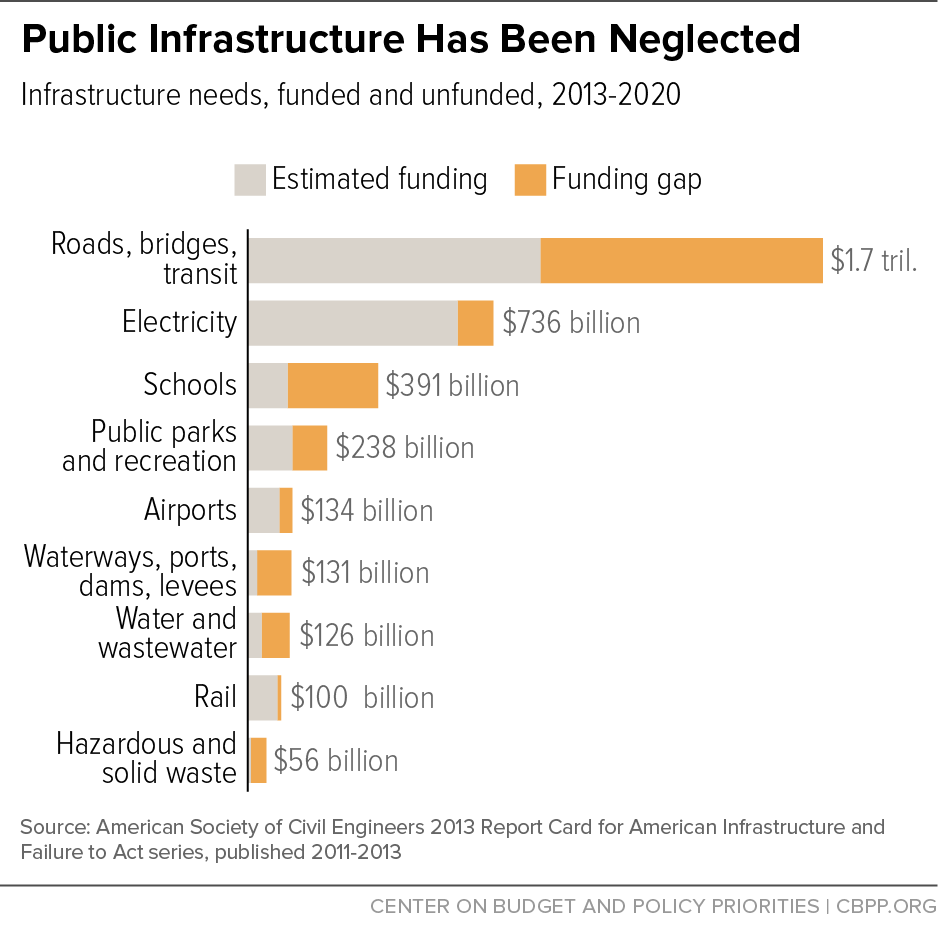BEYOND THE NUMBERS
States are awaiting details of a promised federal plan to invest more in roads, bridges, and other public infrastructure. More federal help would be welcome, but states would be wise to move ahead on their own.
The need to invest in America’s roads, bridges, schools, water treatment plants, and other physical assets is well-documented. The American Society of Civil Engineers estimates that it would cost $3.6 trillion to bring the nation’s infrastructure to a state of good repair by 2020 (see graph). But federal, state, and local investment in infrastructure has fallen. Reversing this decline is key to creating good jobs and promoting a full economic recovery.
States – along with their local partners – are the primary stewards of most of the country’s public capital. They own 90 percent of non-defense public infrastructure assets and pay three-fourths of the costs of maintaining and improving them.
One reason states should take the lead in this area is that the type and amount of assistance they’d receive under a new federal initiative remain unclear. More importantly, President Trump’s plan seems to omit many important areas of need. The plan described during the presidential campaign consists of tax credits to private-sector investors, which would boost investment in projects that will generate revenue like tolls or user fees (such as new roads and bridges) but leave out maintenance of existing roads, bridges, and water lines, and construction of public schools and many public transit projects. Also, less profitable projects like roads in rural areas likely wouldn’t attract private investment even with new tax credits.
Many states are stepping up, in part by raising funds to repair and build bridges and roads. Since 2013, 19 states and the District of Columbia have raised gas taxes, which have shrunk considerably in value due to inflation over the years. A dozen states are considering gas tax increases this year. A recommitment to infrastructure improvements can expand opportunities for all residents by supporting business growth, creating good jobs, and providing a healthier environment.

